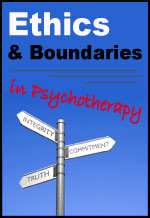By Janice Neumann
 The rate at which infants are suffering withdrawal after being born to mothers on opioid pain killers has increased five-fold since 2000, according to a new U.S. study.
The rate at which infants are suffering withdrawal after being born to mothers on opioid pain killers has increased five-fold since 2000, according to a new U.S. study.
“I think the scope of the problem is staggering,” said Dr. Stephen Patrick, a neonatologist who led the research. “It really calls into question, are we using these opioid prescriptions too much and should we be using them more appropriately in pregnant women.”
The study in the Journal of Perinatology found that from 2009 to 2012 the number of babies with neonatal abstinence syndrome (NAS) increased nationally from 3.4 per 1,000 births to 5.8 per 1,000, reaching a total of 21,732 infants in 2012. A previous study led by Patrick had found a three-fold increase from 2000 to 2009.
A recent CDC analysis showed a high rate of reproductive-age women were being prescribed painkillers. Two-thirds of NAS infants in Tennessee had mothers with illegal opioid prescriptions, according to Patrick.
“We’re seeing an increase in the general population that is also occurring in pregnant women,” he told Reuters Health.
Babies born addicted to pain killers suffer from a number of debilitating health problems ranging from respiratory distress to insomnia, making their care difficult for mothers and hospitals.
“It’s like having a colicky baby times five,” said Patrick, an assistant professor of pediatrics and health policy at Vanderbilt University School of Medicine in Nashville, Tennessee. “They’re extremely fussy, inconsolable, don’t sleep, have feeding problems, shake with substantial tremors, are more likely to have breathing problems and there are some reports they’re more likely to have a seizure.”
The study, which used data from the Agency for Healthcare Research and Quality, found that from 2009 to 2012 hospital charges for these infants increased from $732 million to $1.5 billion, and 81 percent were paid by state Medicaid programs.
The incidence of NAS was highest in the central Southeastern states of Kentucky, Tennessee, Mississippi and Alabama and in New England. These regions also contain the top-five states for prescriptions of long-acting opioid pain relievers, the study team notes: Alabama, Kentucky, Maine, New Hampshire and Tennessee.
The incidence of NAS was lowest in Oklahoma, Texas, Arkansas and Louisiana and in the Pacific-coast states, including Hawaii.
Patrick said more treatment programs for addicted mothers, as well as improved hospital care for NAS babies could help stem the problem.
“This is a complex issue and typically it begins even before pregnancy,” said Patrick. “I think we have to have a broad view of opioid use in the U.S. and respond with public health approaches, which are likely going to be more effective than criminal justice approaches.”
Read more @ http://www.huffingtonpost.com/2015/05/22/babies-pain-killers_n_7344310.html?ncid=newsltushpmg00000003
Related Online Continuing Education Course:
Prescription Drug Abuse is a 3-hour online CE/CEU course that examines the effects of the rise in prescription drug abuse, as well as treatment options for abusers. Prescription drug abuse is on the rise. Pharmaceuticals like OxyContin®, Adderall®, and Xanax® are some of the most commonly abused prescription drugs. For some prescription drug addicts, medication was originally taken as prescribed – until they started developing a tolerance for it. For others, members of their peer group began to abuse prescription drugs because they are easily accessible and relatively inexpensive on the street. Prescription drug abuse also affects those who don’t use – through increased costs and the inconveniences of increased security at pharmacies. Treatment is comprised of a series of steps, including detoxification, inpatient/outpatient treatment, and maintenance. In some cases, patients must be closely monitored because of the potential for withdrawal effects. Once treatment is completed, there are various options for maintaining sobriety. Laws are being tightened, and some medications have become difficult to find due to the increased rate of prescription drug abuse. Course #30-61 | 2012 | 30 pages | 20 posttest questions
This online course provides instant access to the course materials (PDF download) and CE test. Successful completion of the online CE test (80% required to pass, 3 chances to take) and course evaluation are required to earn a certificate of completion. You can print the test (download test from My Courses tab of your account after purchasing) to mark your answers on it while reading the course document. Then submit online when ready to receive credit.
Professional Development Resources is approved to offer continuing education by the American Psychological Association (APA); the National Board of Certified Counselors (NBCC); the Association of Social Work Boards (ASWB); the American Occupational Therapy Association (AOTA); the American Speech-Language-Hearing Association (ASHA); the Commission on Dietetic Registration (CDR); the California Board of Behavioral Sciences; the Florida Boards of Social Work, Mental Health Counseling and Marriage and Family Therapy, Psychology & School Psychology, Dietetics & Nutrition, Speech-Language Pathology and Audiology, and Occupational Therapy Practice; the Ohio Counselor, Social Worker & MFT Board; the South Carolina Board of Professional Counselors & MFTs; and by theTexas Board of Examiners of Marriage & Family Therapists and State Board of Social Worker Examiners.


